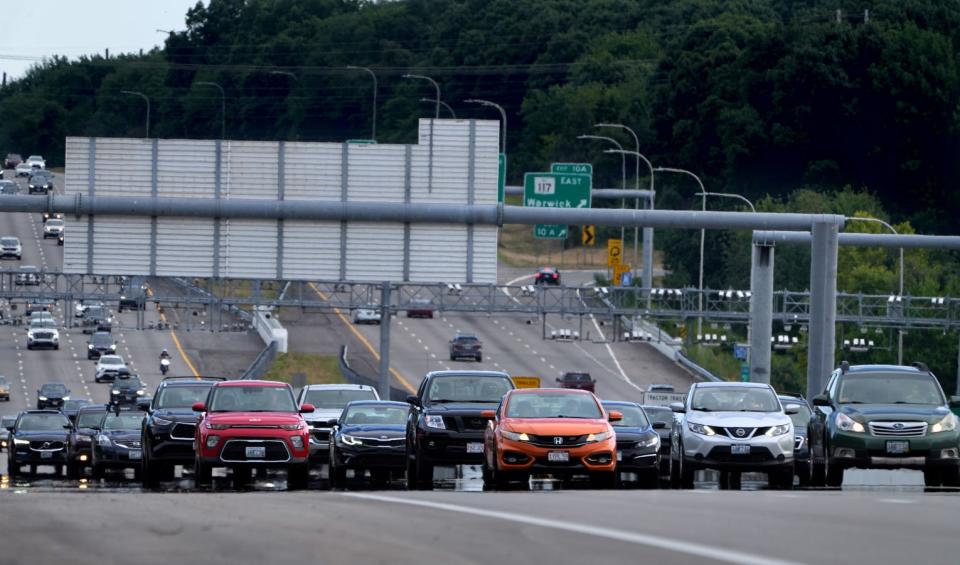Opinion/Roselund: It's time for RI to get serious about transportation emissions
As world leaders debate the future course of action at the COP 27 United Nations Climate Change Conference, it is a good time to take stock of Rhode Island’s progress.
We are off to a good start. In 2021, Rhode Island passed the Act on Climate, landmark legislation that established a commitment to reduce emissions 45% by 2030, in line with national Paris Agreement targets.
In 2022, we followed with a law mandating our utility buy credits to achieve 100% renewable electricity in 2033. We also passed a law requiring that our main utility buy power from 600 to 1,000 megawatts of offshore wind. With these laws, Rhode Island is becoming a national a leader.
Yet we are still a long way from reaching our targets. A central challenge is that electricity is not our largest source of emissions. In 2018, transportation made up 35% of Rhode Island’s emissions, compared to only 26.4% for electricity. Moving away from fossil fuels in the electricity sector is fundamental, but this alone won’t meet our goals.
A wide range of studies — including from think tank RMI, where I formerly worked — has shown that for the United States to have a chance at meeting its climate targets, we must both rapidly electrify vehicles and reduce vehicle miles traveled (VMT). In other words, we have to drive electric, but we also have to drive less. A central problem here is that even with extremely aggressive targets for electrifying automobiles, the enormous number of legacy internal combustion engine vehicles — and the time that they stay on the road — lock in future emissions.
At RMI, we found that in addition to getting to nearly 100% electric vehicles in new car sales by 2030, the United States also needs to also reduce miles traveled 20% to reach Paris targets. As transportation is also the largest source of emissions here, Rhode Island’s targets will need to be at least this strong.
There are many ways to reduce miles traveled, including building more dense housing near services, reforming land use, and enabling work-from-home. But we also need to build infrastructure to enable residents to meet more of their daily needs without driving. This includes building mass transit that works to meet the needs of a wider range of residents. It also building the kind of bicycle, pedestrian and micromobility infrastructure that Providence Mayor Jorge Elorza has championed through Great Streets.
To date, the state has not prioritized transit, bicycle or pedestrian infrastructure. And it is not for a lack of plans. Our ambitious Transit Master Plan remains unfunded. The Bicycle Mobility Master Plan is gathering dust. In fact, with its funding of added lanes to the I-95 viaduct and other projects, the state is going the wrong way on transportation emissions.
These decisions start at the top, with the current leadership of the state's Department of Transportation. RIDOT’s complete disregard for the emissions consequences of the infrastructure it builds and active hostility to active transportation are both challenges.
In coming months Gov. Dan McKee will appoint RIDOT’s director and this director will go to confirmation in the Senate. We need to make sure that the governor and our senators understand the critical role that transportation infrastructure inevitably plays in meeting the Act on Climate targets, and are taking these targets seriously. Progress on emissions to date show a good start, but it is not enough.
We need a new approach to transportation and we owe it to our children and future generations to be sure that we are moving in the right direction.
Christian Roselund is a policy analyst who works in the solar and energy storage industry. He formerly worked as editorial director for think tank Rocky Mountain Institute, and has served as a board member of the Rhode Island Bicycle Coalition. He lives in Providence.

This article originally appeared on The Providence Journal: Opinion/Roselund: We need to get serious about transportation emissions

